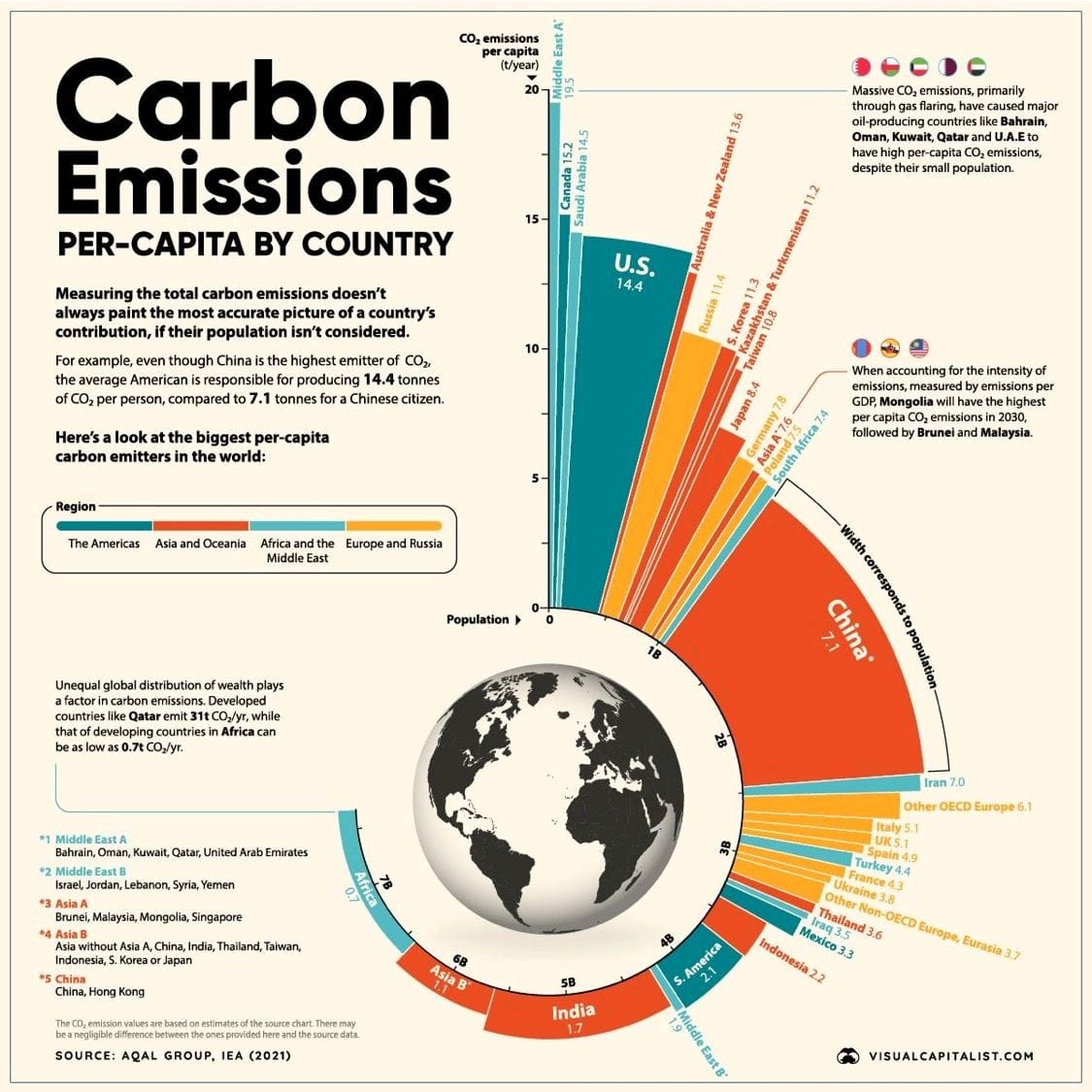COP26
COP26

The Conference of Parties (COP) is the decision-making body responsible for monitoring and reviewing UNFCCC recommendations on global warming and climate change.reviewing UNFCCC recommendations on global warming and climate change.
International Efforts:
Last 25 COPs since 1995, have failed to limit the Global Warming.
The Global Leadership is yet to provide a clear direction for mitigating Climate Change impacts.
COP-26 starting from 31 Oct 2021 could be the last chance for Humanity to avoid catastrophic decline.
The Main themes of COP 26:
- Limiting warming to 1.5 degrees
- Global emissions must halve by 2030
- Globally reach ‘net-zero’ by 2050
- Mobilize Climate Finance
COP 21 at Paris in 2015 saw over 195 countries pledging NDCs to reduce CO2 emissions, But post- pandemic Economic recovery is seeing large rebound to Coal & Oil use with 2nd largest annual increase in CO2 emissions in the History
Will COP 26 be hijacked by finance issues, without committing emission reductions?
Taken from: CCP New Bulletin October 2021 https://www.climatecollectivepune.org/
India Endures Record Heat Wave: ‘The Only Reason Is Global Warming’ https://www.bloomberg.com/news/articles/2022-04-29/india-braces-for-prolonged-extreme-heat-waves
The life-threatening, extreme temperatures have caused hours-long power blackouts and put millions of people at risk.
Thermometer readings have already reached 46 degrees Celsius (115 degrees Fahrenheit) in central and northern India, with two months to go before the monsoon season that typically brings cooling rains. They hit the highest since 1901 last month.- Mrutyunjay Mohapatra, head of the country’s meteorological department
https://www.ndtv.com/india-news/india-weather-extreme-heat-waves-set-to-stretch-into-early-may-2932060
https://thebreakthrough.org/issues/energy/world-bank-imf-shift-focus-from-poverty-to-climate-change
The World Bank and IMF Are Getting It Wrong on Climate Change https://foreignpolicy.com/2022/04/11/the-world-bank-and-imf-are-getting-it-wrong-on-climate-change/
Rich donor countries are working to deprioritize poverty reduction and economic development in the global south.
By Vijaya Ramachandran, the director for energy and development at the Breakthrough Institute, and Arthur Baker, an associate director at the University of Chicago’s Development Innovation Lab.
The shift of focus from poverty to climate is unjust, ineffective, and disastrous for the world’s poor. It’s unjust because rich countries are forcing the World Bank and IMF to deprioritize poverty reduction despite this mission being vital to protect developing countries from the climate shocks caused by rich countries’ emissions. It’s ineffective because poor countries make up only a tiny fraction of global emissions—and their share will remain small even if they were to grow rapidly using fossil fuels. And it will be a disaster for the 3 billion people struggling to escape misery because every dollar spent on the new carbon-reduction mission is a dollar that could instead go into education, medical services, food security, and critical infrastructure
In their zeal to reach emissions targets, rich countries are conflating two things, both of which are crucial to avoid the worst effects of climate change. Mitigation—the reduction of emissions—mostly needs to take place in rich and middle-income countries, which are responsible for the vast majority of carbon emissions. Adaptation—improving resilience to a warming climate—is lifesaving in poorer, more vulnerable countries. Adaptation requires investments in better housing, transportation, education, infrastructure, water management, agricultural technology, and other sectors. And it requires reducing poverty—so that more people have the resources to cope with weather-related extremes. Until now, these kinds of investments have been the bread and butter of the World Bank and other development institutions. By shifting development funding to emissions reduction, they are taking money from the poor and making them less resilient than they would otherwise be.
Prioritizing carbon mitigation over adaptation and poverty reduction in low- and lower-middle-income countries stands the relationship between climate change and development on its head.
The energy Africa needs to develop -- and fight climate change https://www.ted.com/talks/rose_m_mutiso_the_energy_africa_needs_to_develop_and_fight_climate_change?language=en " Everyone must get to a zero-carbon future. In the transition, Africa and other poor nations deserve to get the balance of what's remaining in the world's carbon budget. For economic competitiveness, for climate adaptation, for global stability and for economic justice, rich and high-emitting countries must uphold their responsibility to lead on decarbonization, starting in their own economies. We all have a collective responsibility to turn the tide on climate change. If we fail, it won't be because Senegal or Kenya or Benin or Mali decided to build a handful of natural gas power plants to provide economic opportunity for their people.
Why renewables can’t save the planet | Michael Shellenberger | TEDxDanubia Jan 4, 2019 https://www.youtube.com/watch?v=N-yALPEpV4w Environmentalists have long promoted renewable energy sources like solar panels and wind farms to save the climate. But what about when those technologies destroy the environment? In this provocative talk, Time Magazine “Hero of the Environment” and energy expert, Michael Shellenberger explains why solar and wind farms require so much land for mining and energy production, and an alternative path to saving both the climate and the natural environment. Michael Shellenberger is a Time Magazine Hero of the Environment and President of Environmental Progress, a research and policy organization. A lifelong environmentalist, Michael changed his mind about nuclear energy and has helped save enough nuclear reactors to prevent an increase in carbon emissions equivalent to adding more than 10 million cars to the road. He lives in Berkeley, California.
https://countercurrents.org/2022/04/climate-crisis-scientists-hit-the-streets/
Overnight, civil disobedience by climate scientists erupted in 25 countries on every continent enraged that the IPCC report was “watered down” at the behest of governments that are “unwilling to phase out fossil fuels.”
Wednesday, April 6th will go down in history, as Global Warming Bastille Day marked by the world’s largest ever protests by scientists sick and tired of mealy-mouthed responses by governments that cater to the fossil fuel wealth syndrome that intentionally misled the public and pays off politicians to keep pumping oil regardless of massive ecological destruction.
Scientists have had enough. They are fighting mad and striking back by hitting the streets, chaining themselves to government and private industry buildings, gates, bridges, and entryways in bold demonstrations to stop fossil fuel dead in its tracks.
Scientists chained themselves to the front door of the JP Morgan Chase building in downtown LA. The bank is the world’s leading funder of oil and gas projects.
Climate scientists chained themselves to the White House fence demanded that President Biden declare a “climate emergency.”
12/04/2022
Read more
- India’s coal demand to increase 63% by 2023
- Debt, Climate, Justice
- The latest IPCC report explained
- Mumbai Climate Action Plan
- Climate Change & Cities. And Infrastructure
- As India’s petrochemical industry expands, experts question how it will achieve its net zero target
- Climate Change is a Market Failure
- Oil companies to help write rulebook on whether new fossil fuel drilling is green.
- why China and India aren’t the climate villains of COP26
- Careers to Solve the Climate Crisis
- $80-billion hole in India’s net zero pledge
- World will need 'carbon sucking' technology by 2030s
- Reframing incentives for climate policy action
- What another part of the Leaked 6th PICC report says.
- warning on climate tipping points in leaked draft IPCC report
- Why equity is key to stopping climate change
- Climate change to deliver debilitating blow to seven Karnataka districts
- Small Hydro Power Projects Are Seen As Green. In The Western Ghats, Local Communities Disagree
- The climate crisis explained in 10 charts
- TIME!
- Phasing Out Unabated Coal
- Global Climate Action: Where Do Indian Banks Stand?
- The ‘net-zero’ greenwash
- UN Climate Change Report Explained
- Climate Alliance—or Climate Conflict
- What Must Be Done to Avert Climate Catastrophe? New Economic Thinking
- Climate hazards are threatening vulnerable migrants
- European Commission proposes ambitious climate change policies
- Trump’s Moves to Dismantle Climate Action


